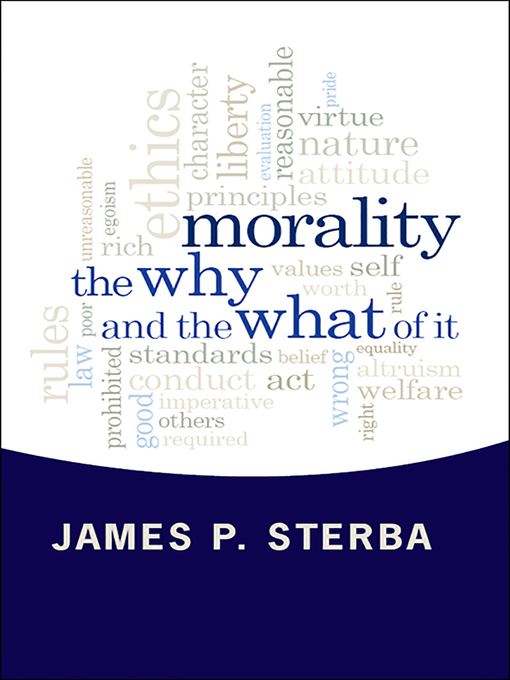This book invites philosophers and their students to consider two of the most fundamental questions in moral and political philosophy: Why be moral? And, what does morality require? Distinguished philosopher James P. Sterba presents his unique views on these topics. Sterba first argues from rationality to morality and then from morality to substantial equality. Prominent scholars Charles W. Mills, Candace A. Vogler, Anita Superson, Russ Shafer-Landau, Allan F. Gibbard, Gerald Gaus, and Tibor Machan provide thought-provoking critical responses. In the final part, Sterba addresses these critiques, inviting readers to explore the various arguments and reach their own conclusions on these fundamental questions of moral and political philosophy. Morality: The Why and What of It is an essential text for all students and scholars of ethics and political philosophy.
-
Creators
-
Publisher
-
Release date
February 28, 2012 -
Formats
-
OverDrive Read
- ISBN: 9780813346823
-
-
Languages
- English
-
Reviews
-
Booklist
February 1, 2012
The next time legislators, economists, and policymakers gather to debate welfare policy, they had better reserve space for at least one moral philosopher. Determined to break his profession out of its usual political irrelevance, Sterba here advances a bold argument for a rationally based morality that confers on the poor a right to basic welfare benefits. Having laid out his carefully reasoned argument in part 1 of this book, Sterba invites seven colleagues to critique his logic in part 2. Though generally sympathetic to Sterba's project, several of these respondents express doubts about his thinking. One critic, Gerald Gaus, even warns of the potentially inhumane consequences of Sterba's endorsement of government compulsion of altruism toward strangers, so undercutting a more natural altruism toward kin. Reserving to himself the right of rejoinder, Sterba responds to his critics in part 3, clarifying his reasoning and rebutting contrary lines of analysis. Doubts will persist among skeptics, but Sterba has reset the terms for debate among those serious about applying moral principles to public policy.(Reprinted with permission of Booklist, copyright 2012, American Library Association.)
-
Loading
Why is availability limited?
×Availability can change throughout the month based on the library's budget. You can still place a hold on the title, and your hold will be automatically filled as soon as the title is available again.
The Kindle Book format for this title is not supported on:
×Read-along ebook
×The OverDrive Read format of this ebook has professional narration that plays while you read in your browser. Learn more here.

